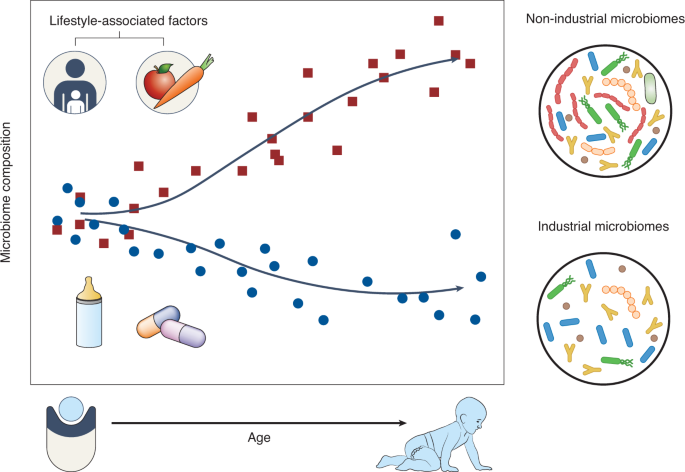Acquisition of the community of microbes that forms our gut microbiota occurs during and after birth1. An infant’s gut transforms into a complex microbial ecosystem over time, a process that is often likened to the formation of a complex ecosystem on an island that has risen from the ocean. A key point of this analogy is that the location of the new island is a critical determinant of the species that colonize its surface: an island near Antarctica is more likely to be colonized with penguins, whereas an island that forms in the tropics has a higher probability of supporting palm trees. Today we know that the microbiomes of humans following industrialized and non-industrialized lifestyles are very different in adulthood, and we also know that infants from all lifestyles are born largely sterile1. The complex process by which these similar early microbial communities diverge remains largely unknown. In this issue of Nature Microbiology, de Goffau et al2. shed light on this process by studying the microbiota of a large cohort of children who live non-industrialized lifestyles in The Gambia from birth until age three.
https://www.nature.com/articles/s41564-021-01036-1
Microbiome assembly in The Gambia
